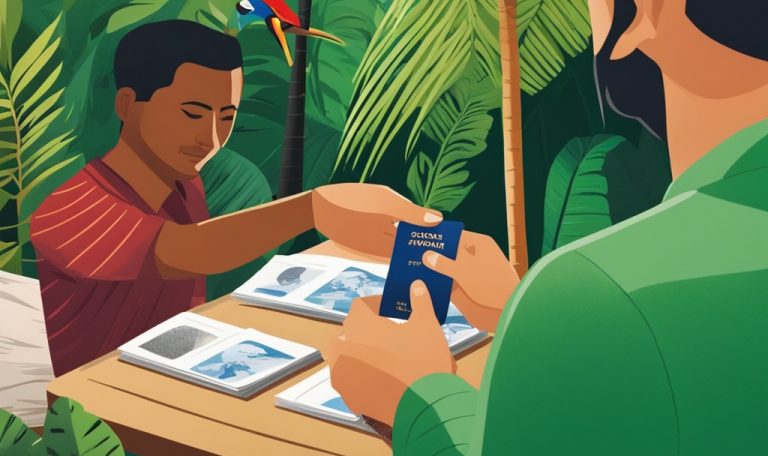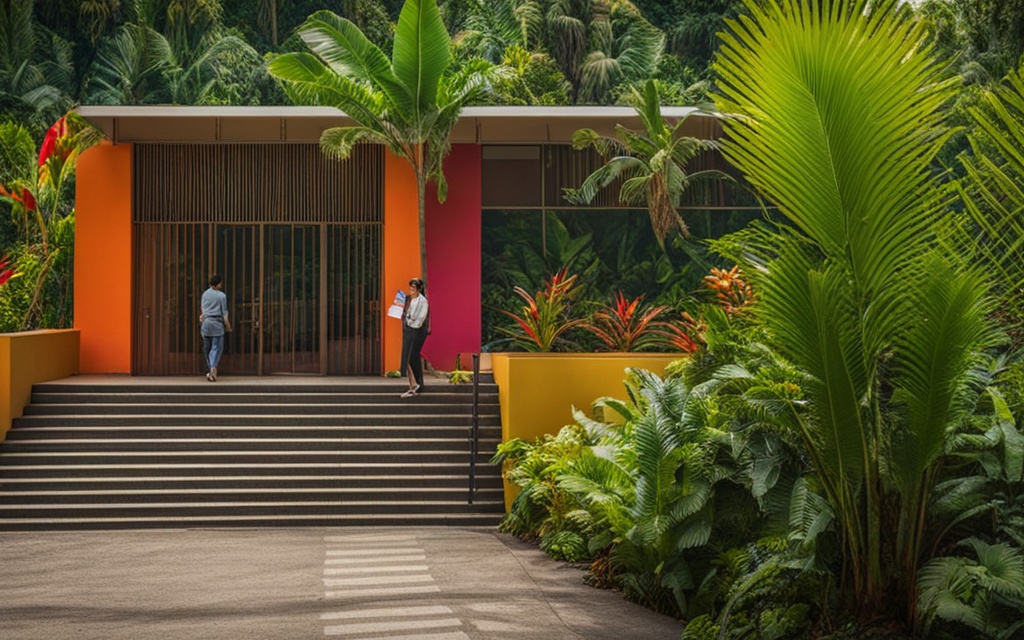If you’re considering applying for a residence permit in Costa Rica or are already in the process, this information will be valuable to you.
Recently, Costa Rica reintroduced the consular registration requirement for individuals seeking residency in the country. This rule has important implications for expats and foreigners looking to make Costa Rica their new home. Understanding the consular registration process and its significance is crucial for a successful residency application.
In this article, we will dive into the details of the consular registration requirement and provide guidance on navigating the residency process in Costa Rica. We will also keep you updated on the latest information and updates from the Costa Rica consulate regarding consular registration and other immigration requirements.
So whether you’re just starting your residency journey or need to stay informed about the latest consulate updates, this article is for you. Let’s explore the ins and outs of Costa Rica residency applications and the reinstated consular registration rule.
Key Takeaways:
- Costa Rica has reinstated the consular registration requirement for residency applications.
- Understanding the consular registration process is essential for a successful residency application in Costa Rica.
- This article provides valuable information and guidance on navigating the residency process and staying updated with consulate updates.
- Complying with the residency rules and requirements is crucial for obtaining legal residency in Costa Rica.
- Stay informed and follow the correct procedures to ensure a smooth residency application process.
Understanding the Consular Registration Requirement
Starting October 16, 2023, foreign nationals and their dependents seeking initial residence permits in Costa Rica must register with their home country’s consulate in Costa Rica before applying for their initial Residence Identity Card (DIMEX). This reinstatement reactivates a policy initially put in place in 2012 but was suspended in 2021 during the COVID-19 pandemic.
What is Consular Registration?
Consular registration in Costa Rica refers to the formal registration of foreigners with their respective consulates or embassies. It involves providing necessary personal information and documentation to the consulate, which is then recorded and maintained in their database. This registration is necessary for individuals applying for a residence permit in Costa Rica.
By registering with the consulate, expats establish their residence in Costa Rica and secure the support and protection of their home country while residing abroad. This process ensures that the consulate is aware of their presence in Costa Rica, making it easier to provide assistance when needed. Additionally, consular registration helps establish an official connection between the individual and their home country, serving as a vital link between the two.
Why is Consular Registration Important for Residency?
The consular registration requirement is an essential step in the Costa Rica residency process. It not only helps individuals maintain a connection with their home country but also serves as a way for the Costa Rican government to track and monitor foreign residents effectively.
The Situation
The General Immigration Directorate (DGME) has issued a resolution that mandates the consular registration for all initial residence applications. This registration must be completed prior to the application for a DIMEX once the residence permit has been approved.
Specific Rules and Regulations
When applying for consular registration in Costa Rica, individuals must carefully adhere to the specific rules and regulations set by their respective consulates. These rules may vary depending on the individual’s home country and consulate’s requirements.
Common requirements for consular registration include documents such as passport copies, proof of residency or address in Costa Rica, and completed registration forms. Some consulates may also require additional documentation or proof of purpose for residing in Costa Rica, such as employment contracts or investment plans.
It is essential to consult with the relevant consulate or embassy to ensure compliance with their specific registration process. By fully understanding and meeting the requirements, expats can streamline their residency application and avoid any unnecessary delays or complications.
To learn more about the consular registration process and specific rules for your home country, it is recommended to contact your nearest consulate or embassy in Costa Rica.
“Consular registration ensures a smooth transition to living in Costa Rica and provides a vital link between individuals and their home country while residing abroad.”

| Benefits of Consular Registration | Requirements for Consular Registration |
|---|---|
|
|
Can I do this online?
Many countries offer online platforms for citizens living abroad to register and receive important information. For example, the United States has the Smart Traveler Enrollment Program (STEP). This free service allows U.S. citizens traveling or living abroad to register their trip or residency. STEP provides several benefits:
Stay Informed: Registering with STEP ensures you receive the latest information about your host country, including travel warnings, alerts, and a newsletter from the nearest U.S. embassy or consulate.
Stay Connected: STEP enrollment helps U.S. officials locate and assist you in emergencies, such as lost passports or natural disasters.
Stay Safe: STEP allows consular officers to contact you and your family if necessary, facilitating communication during emergencies or important news from home. Additionally, STEP offers access to travel advisories, security threat reports, and other resources to help you make informed travel decisions.
By registering with STEP, you’ll be a safer and more connected traveler.
Who does it apply to? Are there Exceptions?
A closer look reveals the full scope of the reinstated consular registration requirement. It applies to all initial residence permit applications, regardless of the specific visa category an individual seeks (living, working, etc.) within Costa Rica. However, there are a few exceptions. Foreign nationals whose home countries lack consular representation in Costa Rica, along with those applying for permits related to border crossings or tourist stay extensions, are not subject to this requirement. The registration itself must be completed before applicants can obtain their DIMEX residence card, even though it occurs after the initial residence permit is granted. Finally, applications submitted before October 16, 2023, are not impacted by this change and won’t need consular registration.
Impact
This reinstated requirement adds an additional step to the residency application process, potentially creating administrative burdens, incurring additional costs, and causing delays. Foreign nationals will need to present themselves in person at their respective consulates, which could complicate the timeline of their residency applications.
Despite these challenges, having a valid DIMEX is crucial as it enables foreign nationals to engage in various activities within Costa Rica, such as traveling abroad, accessing government services like obtaining a driver’s license, and conducting financial transactions including opening a bank account.
Background
The requirement for consular registration has a cyclical history in Costa Rica. Initially implemented in 2012, it aimed to enhance control over the influx of foreign nationals. By requiring verification through their home country consulates, the Costa Rican government sought to ensure the legal status of all applicants. The recent reinstatement of this requirement by the DGME reflects similar concerns. Their goal is to bolster the integrity of immigration processes by verifying the identities of all applicants. This emphasis on verification strengthens legal compliance and safeguards national security.
Looking Ahead
In response to rising challenges such as increased irregular immigration and concerns about organized crime, the Costa Rican government is expected to continue adapting its immigration policies. These changes aim to address security concerns and ensure the orderly processing of new residents.
Navigating the Costa Rica Residency Process
Understanding the Requirements: Familiarize yourself with the latest immigration requirements, which now include consular registration. Each residency category, such as pensionado, rentista, or investor, has specific criteria that applicants must meet.
Gathering Documentation: Compile all necessary documents required for your residency category. This generally includes a valid passport, police clearance, and financial proof, among others. Ensure that all documents are notarized and translated into Spanish as needed.
Applying for Residency: Submit your application along with the required documentation to the Costa Rican immigration authorities or through the consulate in your home country. Make sure to follow all specified procedures to avoid delays or rejections.
Patience and Follow-Up: After applying, maintain communication with the immigration authorities to check the status of your application. Be prepared for potential delays given the new requirements.
Conclusion
The reinstatement of the consular registration requirement marks a significant update to the residency application process in Costa Rica. While it introduces additional steps and potential challenges, understanding and adhering to this requirement is crucial for achieving successful residency in the country.
By staying informed about these changes and preparing accordingly, applicants can enhance their prospects for a successful transition to life in Costa Rica.
FAQs
What is consular registration? Consular registration involves formally registering with your home country’s consulate in Costa Rica, providing necessary personal details and documentation.
Why is consular registration important for obtaining a residence permit in Costa Rica? It verifies your identity and legal status, which is essential for the processing of your residency application.
What steps are involved in the Costa Rica residency process? The process includes understanding the requirements, gathering necessary documents, applying through the appropriate channels, and following up on your application.
Where can I find up-to-date information on consular registration and other immigration requirements in Costa Rica? Regularly visit official government websites, such as the Ministry of Foreign Affairs or the DGME, for the most current information.



